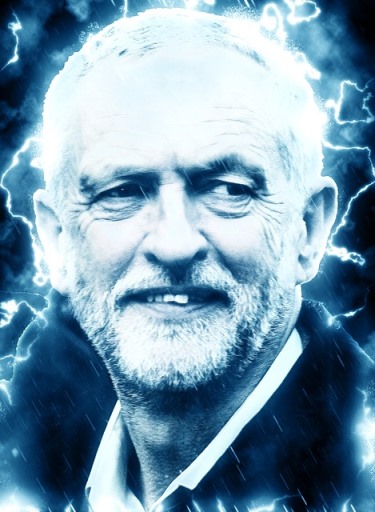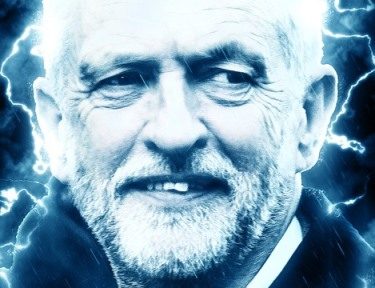This post was contributed by Dr Dionyssis Dimitrakopoulos of Birkbeck’s Department of Politics where he directs the MSc programme in European Politics & Policy. Here, Dr Dimitrakopoulos looks at what the recent month’s activities indicates about the Labour Party’s possible future. A version of this post was commissioned by the ESRC’s ‘The UK in a Changing EU’ programme, and published on its website.

Labour Party leader Jeremy Corbyn
When Mark Rutte, the Liberal prime minister of the Netherlands, said that “England has collapsed”, he was not referring to England’s elimination from the European football championship by Iceland. What he meant was that the UK has collapsed, in his words, “politically, monetarily, constitutionally and economically”.
Far from looking like a party of government in waiting, capable of offering an answer, the Labour party has become entangled in this systemic crisis and may end up splitting as a result. The party’s reaction to the outcome of the referendum on the UK’s membership of the European Union demonstrates that the image of unity and pro-European conviction that could be detected before the referendum was little more than a façade. The pro-European conviction is being shaken to the core and unity, if it ever existed, has evaporated.
Key facts indicate that it did not have to be like that. Recent polling indicates that 81% of Labour party members are in favour of the UK’s membership of the EU. Nearly two thirds of those who voted Labour in 2015 are estimated to have voted for the country to remain a member of the EU. More than 90% of Labour’s MPs were active supporters of the Remain campaign and the leaders of virtually all trade unions and the TUC. For a party that over the past year has been divided over a number of policies, these are indications of a remarkable degree of unity. In reality, though, things are quite different. The behaviour of leading Labour politicians indicates that both the left and the right wing of the party find it very easy indeed to move away from their declared pro-EU stance.
Corbyn, and immigration
Jeremy Corbyn’s performance in the referendum campaign was so lackluster and he was, arguably, so late in supporting the Remain camp (a stance that may be the result of his Bennite associations), that a couple of weeks before the referendum almost half of Labour’s voters said they did not know where the party stood on the referendum question. The extraordinary degree of hostility from the media towards its leader (a hostility that brings to mind the mendacity of the British press against the EU that arguably had a decisive impact on the referendum’s outcome) can explain only part of this state of affairs. Even if one ignores the multiple allegations that Corbyn and his collaborators actively sabotaged the party’s Remain campaign, the suspicion that Corbyn actually preferred Brexit was compounded by his spokesman’s statement that the result shows that Corbyn’s view is much closer to the views held by the British public.
Secondly, the extent of anti-EU sentiment in the party’s former heartlands in the North of England was such that just days before the referendum leading members of the party’s frontbench like its deputy leader Tom Watson and prominent backbenchers like Yvette Cooper argued in favour of restrictions in the free movement of people inside the EU. Cooper in particular was so desperate in this attempt that she argued in favour of the abolition (in all but name) of the essence of Schengen area (i.e. one of the most significant achievements of the process of European integration) despite the fact that the UK is not part of it. This was a belated and ultimately unsuccessful effort to appease the anti-immigrant (to put it mildly) feeling that was unleashed by the referendum.
It was reminiscent of the party’s 2015 general election pledge to reduce new EU migrants’ access to some benefits for two years: late, wide of the mark, out of line with the party’s pro-EU stance and ultimately unsuccessful. Crucially, these Labour politicians did not try to confront the public’s misconceptions and prejudices at a time when academic research shows the significant contribution that EU immigrants make to the exchequer, even before one considers the cultural and other forms of their contribution. Nor did they say much about the fact that for decades non-EU immigration (for which the UK has sole responsibility) has been higher than immigration from the EU.
So, even if one (despite the evidence) believes that immigration in the UK is a problem, policy failed in the part that is under the control of the UK government. Though changing public perceptions during the post-fact politics is anything but easy, these Labour politicians have failed the party and the country by allowing the fact-free, anti-EU and anti-immigration sentiment to settle.

A major dilemma
To his credit Corbyn publicly rejected the notion that immigration is a problem. Both he and John McDonnell, the shadow chancellor, were right to argue that parts of the country were feeling the negative impact of immigration as a result of decisions made in Whitehall, not Brussels. Proof of this is the scrapping by the Conservative/Liberal coalition government in August 2010 of the fund that was meant to help ease the pressure on housing, hospitals and schools felt by these communities.
The huge row inside the Labour party after the referendum has focused much more on Corbyn than on the policies that the party ought to pursue in the future. In this context even some of Corbyn’s supporters (including amongst trade union members) have acknowledged that under his leadership Labour cannot make the electoral progress that it needs to make and offer the country a real alternative to the Conservative government.
At the same time, internal analysis of Labour’s performance in last May’s local elections shows that the party has increased its share of votes in areas where this progress would not affect the outcome of a general election. As the authors of that analysis put it:
“The strategic problem is that only 14% of our gains were in areas we need in order to win general elections – while just under 50% of our losses were in those areas.”
This poses a major dilemma, the answer to which will determine the fate of the Labour party in the next decade or so. Should it abandon its pro-Europeanism of which its support for immigration is a key indication and hope to attract some of the voters it has lost in its Welsh and northern English former heartlands or should it stick to facts and principles and try to change (rather than echo) the views of these voters some of whom harbour xenophobic opinions. In other words, at the end of the day, it must decide whether it is a progressive, left-wing party or not.
Those amongst its most prominent MPs and officials who (with varying degrees of enthusiasm) prefer the former to the latter must be aware of the costs that this option will entail. Joining the anti-immigration bandwagon (instead of, for example, attacking austerity and beefing up labour standards) is no free lunch.
The millions of cosmopolitan, urban dwellers (including those who helped propel Sadiq Khan to victory in the 2016 London mayoral elections) who support Labour (and have boosted its membership since Corbyn’s victory) will abandon it if it becomes little more than ‘red UKIP’ while it is hard to see why other voters (who could be tempted by the anti-immigration line) will prefer the copy to the original. After all, preliminary evidence shows that a) there is absolutely no correlation between wage growth and support for Brexit and b) culture and personality, rather than material circumstances, lie behind majority support for Brexit.
Note: This post represents the views of the author and not those of Birkbeck, University of London
Find out more

